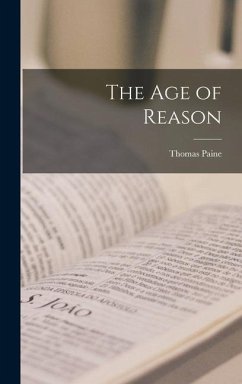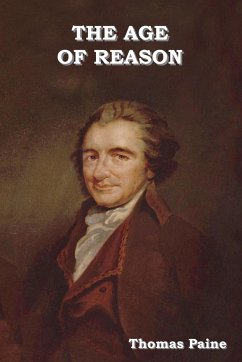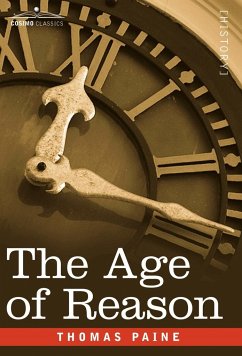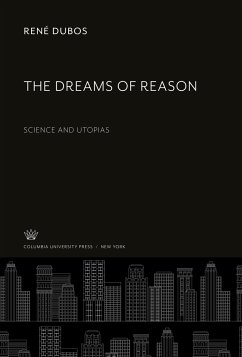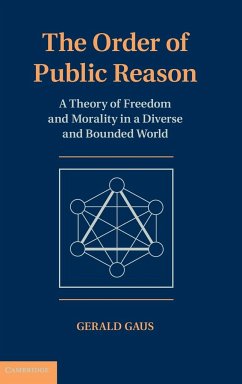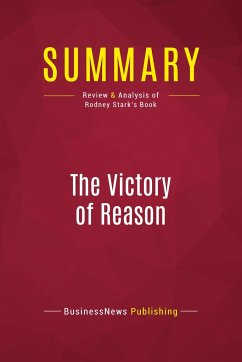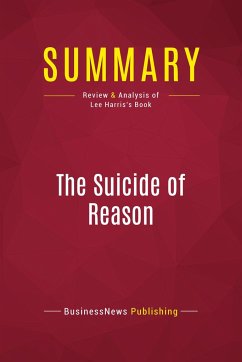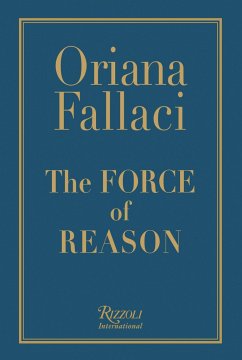
The Age of Reason
Versandkostenfrei!
Versandfertig in 1-2 Wochen
24,99 €
inkl. MwSt.

PAYBACK Punkte
12 °P sammeln!
Thomas Paine was a devout deist. That is, he believed in God, not because of faith, but rather because of the rational empirical evidence that the natural world provides. The Age of Reason was Paine's treatise on religion. At the time of its publication it caused such a furor that Paine had to move to France to escape it. The book was a indictment of organized religion and its practices. Furthermore, he pointed out that the Bible was full of inconsistencies and therefore not something to be relied on. Reason should be our guide before even the Bible or other religious dogma. Included in this e...
Thomas Paine was a devout deist. That is, he believed in God, not because of faith, but rather because of the rational empirical evidence that the natural world provides. The Age of Reason was Paine's treatise on religion. At the time of its publication it caused such a furor that Paine had to move to France to escape it. The book was a indictment of organized religion and its practices. Furthermore, he pointed out that the Bible was full of inconsistencies and therefore not something to be relied on. Reason should be our guide before even the Bible or other religious dogma. Included in this edition is the Third Part of the essay, which most editions fail to include.






